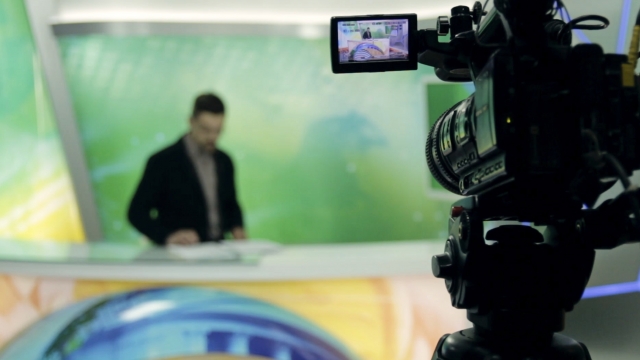Public perception of and attentiveness to news typically depends on what's happening in the U.S. and why. Right now, trust in American media appears to be at a historic low.
Recent polling from Gallup shows only 34% of Americans seem to trust the news. Just 7% of those Americans have "a great deal" of trust and confidence in the media, while 27% would say they trust news "a fair amount." It also found 28% of U.S. adults say they do not have much confidence in newspapers, TV and radio, with 38% having no confidence at all.
These numbers can be worse depending on the survey or poll, but they all underscore one thing: Americans say they don't trust news media right now.
"The public has been very ambivalent about the media for a very long time, so disenchantment that is showing up in polls now is not anything new," said Ed Wasserman, a professor and former dean of the Graduate School of Journalism at UC Berkeley.
According to Wasserman, much of Americans' distrust in media can be traced back to political attacks against media coverage going back decades, like the Vietnam War.
"This has been a favorite issue among conservative politicians going back to the late 1960s," Wasserman said. "At that time, it was how the media were thought to be insufficiently patriotic with respect to the war in Vietnam and divisive and perhaps unduly supportive of cultural movements and of cultural disaffection. And for those reasons, it worked."
Then came the Watergate scandal in the early 1970s. While that exposed the need for the media as a check on government power, there was still a lot of public cynicism, especially among conservatives.
"I think since then, the media, the identity of the media as being a kind of an intractably liberal progressive force, has taken root and been used effectively by politicians on the right," Wasserman said. "The irony is that for many, many years before then, the media had been seen as very conservative force, and certainly during the Roosevelt Administration, the media were seen as anti-New Deal. The newspapers were seen as real, implacable opponents of Roosevelt, so it's funny the way that has turned turn around historically in political terms."
While those events somewhat established the political divide, covering politics is more prominent than ever today. Research shows when it comes to getting news about politics and government, liberals and conservatives live in different worlds with very little, if any, overlap in their primary news sources, and that can significantly impact their views.
In a stark example of this, an experiment that involved making regular Fox News viewers watch CNN instead for a month found that it moderated a lot of the viewers' more extreme views. The study concluded that, "Partisan media viewers' attitudes appear more malleable than some suggest" and that a partisan consumption of news sustains polarization.
Nina Alvarez, the director of global journalism at Columbia Journalism School, finds that partisan media attacks can make reporting incredibly difficult, especially in more polarized areas, like middle America. Those reporting difficulties can exacerbate divides and mistrust already compounded by other factors, like a rapid decline in local news or digital media's problem of misinformation.
"I think I have an easier time in Africa or the Middle East than I do in the United States," Alvarez said. "I think that media literacy is also something that has been lacking in our education, and so that also has an impact because consumers aren't really equipped to tell the difference between what's journalism that is living up to journalism standards of fact-based accuracy that other organizations aren't aren't upholding."
So, how can news audiences know which organization to trust?
"The first thing I would look to do is how are they sourcing the information. How forthright are they in identifying the sources? And if the sources of the information are being clearly identified and you find those sources of information to be credible and believable, then that that reporter tends to deserve your attention," Wasserman said.
Experts like Wasserman say it's also important to consider why certain topics receive news coverage and others don't get the same attention.
"So are they playing out an agenda, a political agenda, in the way in which they're composing their news agenda? Or, are they actually directing my attention to things that I ought to be worried about and ought to be thinking about and ought to be acting on?"
Considering motive and sources, and consuming diverse and credible media is all important for news audiences, but improving diversity within news organizations is equally important — something some news outlets are at least trying to work on. Diverse newsrooms help cover communities of color accurately and respectfully, leading to improved trust.
"I think that that actually has helped build some trust in communities that traditionally didn't trust the media because of the way they were constantly portrayed, and I think that's been an important advance," Alvarez said. "I hope that it contributes to expanding trust among, among people in the United States."
This story was originally published on Scrippsnews.com.


